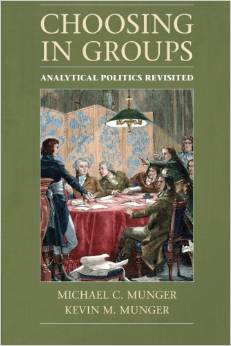Last year’s most popular guest, Duke University’s Mike Munger, was back on EconTalk, discussing the process of choosing in groups.
Their conversation ranged from Odysseus to the Lewis and Clark expedition, and more.
1. Munger and Roberts, in discussing the Lewis and Clark expedition, suggest there is something “fundamentally human” about voting, particularly when its aim is to garner information in the face of uncertainty. EconLog’s Bryan Caplan, however, is a proponent of the “myth of the rational voter.” To what extent would Caplan agree with the assessment of Munger and Roberts in this instance? Were Lewis and Clark and their mates immune to Caplan’s concerns? How reliable was the information received by Lewis and Clark via the vote they called?
2. In discussing polycentricity, Munger says, “If the decision group is larger than the size of the problem, you are going to impose, unnecessarily, a uniformity of choice when you could have a diversity of choice.” Explain what this means. What decisions belong in the public sphere? Does Munger’s interpretation of polycentricity help answer that question? What role does the size of the group and the geographic scope of the political unit play in this question?


Comments are closed.